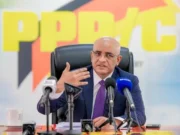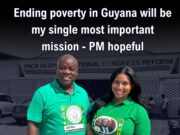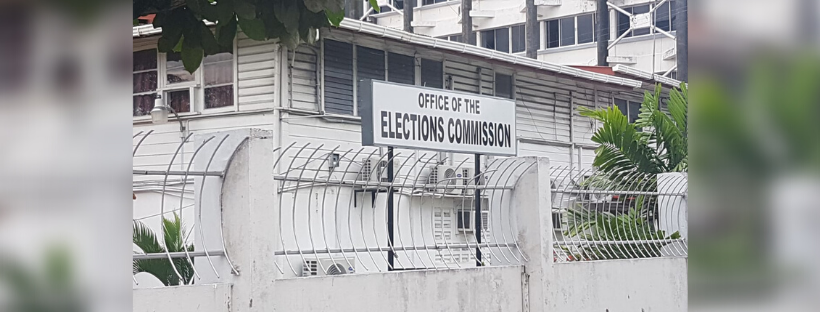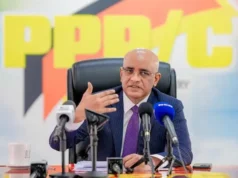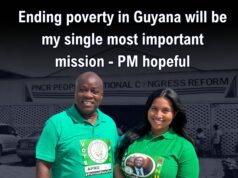By Sueann Wickham
In a bold defiance of international norms, Venezuela once again takes center stage, given its bold ambitions to claim Guyana’s Essequibo territory through a contentious referendum scheduled for today, December 3, 2023.
The International Court of Justice (ICJ) issued an emphatic ruling on Friday, instructing Venezuela to refrain from actions affecting Guyana’s control over the Essequibo Region.
Despite this, Venezuela, displaying a total disregard, continues with its audacious move, including ignoring the resounding calls from the international community to stand down. This could not only invite a fresh wave potential repercussions but also a revisit of sanctions from the international community.
As the world grapples with the implications of this brazen pursuit, the unfolding controversy prompts Guyana Standard to delve into some of the intricate dynamics of Venezuela’s previous sanctions and confrontations with the international community.
In the past, Venezuela has faced a series of sanctions from various countries and international bodies, notably the United States and the European Union. Venezuela’s tryst with sanctions began against a backdrop of economic turbulence and political upheaval.
It is no secret that Venezuela’s economic decline was exacerbated by both internal and external factors. Internally, government policies, such as nationalization of industries and currency controls, created distortions in the economy. Meanwhile, corruption and mismanagement further weakened institutions.
However, externally, it was the sanctions that played a major role in crashing, what was an already ailing economy. The United States, among other countries, imposed sanctions on Venezuela in response to concerns about human rights abuses, anti-democratic practices, and alleged support for illicit activities. These sanctions targeted key sectors like oil and finance, restricting the government’s access to international markets and hindering its ability to manage its debt.
The sanctions, while intended to pressure the government, also had collateral effects on the general population, contributing to economic hardships. The timeline of these sanctions is as follows:
1. 2015: The United States imposed sanctions on Venezuela, initially targeting individuals accused of human rights abuses and corruption. The reasons cited were concerns about democratic governance and human rights violations.
2. 2017: The U.S. escalated sanctions by imposing financial restrictions, including prohibiting certain financial transactions involving Venezuelan government debt. The justification included opposition to the Venezuelan government’s constitutional changes.
3. 2019: The U.S. intensified sanctions on Venezuela’s oil sector, a critical component of the country’s economy. This move aimed to increase pressure on the government to promote political change and address the humanitarian crisis.
4. EU Sanctions: The European Union also imposed sanctions on Venezuela, including an arms embargo and a ban on equipment that could be used for internal repression. The EU had expressed concerns about the deteriorating political situation and human rights abuses.
The restrictions on the oil sector, which accounts for a substantial portion of the country’s revenue, led to a significant decline in production. This, coupled with economic mismanagement, resulted in hyperinflation, shortages of essential goods, and a contracting economy.
The country also endured years of stringent sanctions until October 2023 when the Joe Biden administration in the United States eased some sanctions on Venezuela’s oil sector. This decision was prompted by Venezuela’s commitment to two key conditions: firstly, President Nicholas Maduro must initiate the release of all American hostages currently held in the country, and secondly, he must commit to holding a free and fair presidential election in 2024. The agreement specified the need for a defined timeline and process for the swift reinstatement of all candidates, ensuring their freedom of movement and physical safety.
The U.S. Treasury Department also issued a new general licences, granting Venezuela, an OPEC member, the authority to produce and export oil to its chosen markets for the next six months without limitations. Following this approval, the country has engaged in a gas deal with Trinidad and Tobago known as the Dragon Gas Development. This collaborative offshore project involves Venezuela, Trinidad and Tobago, along with participating firms, facilitating the export of Venezuelan natural gas to the Caribbean island. Notably, the Dragon project, with its vast 4.2 trillion cubic feet capacity, had been stalled for over a decade due to insufficient investment and, significant U.S. sanctions on Venezuela.
Despite the significant sanctions it has faced, it comes as a shock to many that Venezuela is still bolting ahead with aggression and intent to not relinquish its claim of Guyana’s Essequibo region. Authorities, including President Nicholas Maduro, have openly stated their disregard for the 1899 Arbitral Award that delineated the boundary between the then British Guiana and Venezuela. This award is considered a “full, perfect, and final settlement” addressing all questions related to defining the boundary lines between Guyana and Venezuela.
Interestingly, the first question in Venezuela’s referendum explicitly proposes rejecting the award, stating, “Do you agree to reject by all means in accordance with the law the line fraudulently imposed by the Paris Arbitration Award of 1899 that seeks to deprive us of our Guayana Esequiba.”
It is worth noting that Venezuela has a history of being the central aggressor in territorial disputes, influencing severed diplomatic relations throughout South America and the Caribbean. Apart from the well-known conflict with Guyana over the Essequibo region, Venezuela has been engaged in disputes with various neighboring countries.
1. Colombia: The two nations grappled with border issues, leading to strained relations. The Catatumbo River area and the Gulf of Venezuela have been focal points of contention and over time, disagreements arose regarding the exact delineation, leading to tensions. Narcotics trafficking and rebel activities in border areas have also fueled the dispute.
2. Brazil: While the majority of their border is well-established, there have been disagreements, particularly in the context of the Amazon rainforest and these disputes have sparked tensions over the years. Venezuela touted disputes over resource extraction, environmental concerns, and indigenous territories, which have all contributed to strained relations. Economic interests and differing views on sustainable development have also played a role.
3. The Netherlands (Aruba, Bonaire, Curaçao): Venezuela’s claims over these Caribbean islands have been a source of friction, especially concerning maritime boundaries and economic zones. Venezuela had expressed concerns over perceived economic and political influences in the region. Additionally, issues related to fishing rights and maritime boundaries had fueled tensions.
Indeed, Venezuela’s historical pattern of territorial disputes seems intrinsically tied to a desire to exploit the resources of neighboring states.
Whether it be the contested regions with Colombia, driven by the potential for lucrative activities such as narcotics trafficking, or the disputes with Brazil over the Amazon rainforest, where resource extraction and differing views on sustainable development come into play, a common thread emerges. The claims on Caribbean islands also underscore a strategic interest in controlling maritime zones and accessing valuable resources. This pattern suggests that Venezuela’s territorial actions are, to a significant extent, motivated by a strategic pursuit of economic benefits and resource exploitation.
Venezuela’s history of territorial bullyism for resource gain is also notably accentuated by its increased claims on Guyana’s Essequibo region, particularly following Guyana’s 2015 oil discovery by ExxonMobil. The subsequent millions of dollars in revenue generated annually from this oil find have seemingly intensified Venezuela’s interest in the disputed territory, underscoring a direct link between economic motives and the nation’s territorial behavior.
Beyond a desperate pursuit of seizing Guyana’s resources, experts posit that Maduro might be orchestrating the fight for Guyana’s Essequibo as a campaign tactic, potentially driven by concerns over his prospects in the upcoming 2024 presidential election against opposition contender María Corina Machado.
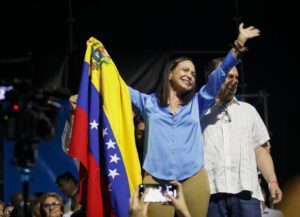
This viewpoint aligns with a recent analysis from Geopolitical Risk Practitioner Semaj McDowell, who characterized Venezuela’s escalating claims on Guyana’s Essequibo region as a strategic distraction by President Nicolás Maduro. With the looming 2024 elections and a genuine challenge to his regime from María Corina Machado, Maduro is seemingly employing this territorial controversy as a means of diverting attention away from the real issues facing his nation.
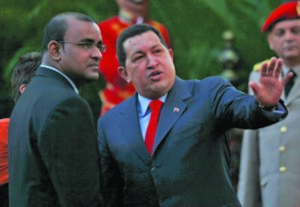
“I find it also very interesting and coincidental that this conflict is brewing as Venezuelan elections are nearing and Maduro is facing a real challenge to his regime from María Corina Machado,” McDowell remarked.
Further reinforcing this perspective, a recent poll conducted by Venezuelan firm Meganalisis indicated that Machado would secure 70% of the votes against Maduro. The same poll revealed that a significant 80% of respondents considered socialism detrimental, associating it with misery in the country.
As Guyana and the world watches with anticipation, the spotlight is on what Venezuela’s actions will be following its planned referendum today.
